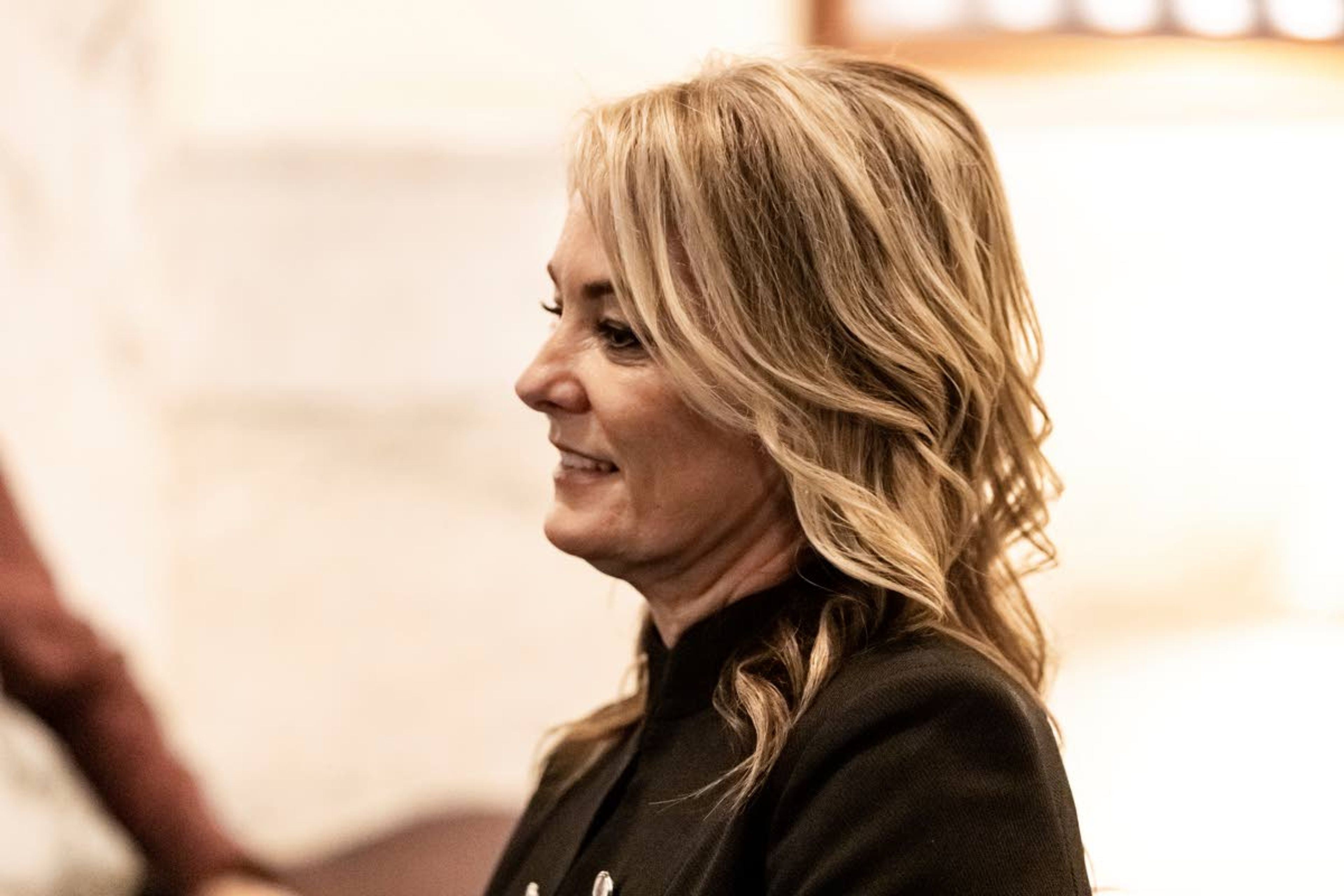Ybarra challenges legislators to invest in future
In annual presentation, state ed leader links increased funding to a vibrant economy
BOISE — Superintendent of Public Instruction Sherri Ybarra presented her fiscal 2023 budget request to lawmakers Monday, saying it’s “time to make strategic investments in Idaho students and schools.”
“I’m here to advocate for additional investments in schools, given the record budget surplus we’re fortunate to have,” Ybarra told the joint budget committee. “I look forward to working with you to make investments that will ensure our economy stays strong and the envy of the nation.”
Ybarra, who is running for reelection this year, gave the committee an upbeat presentation on Idaho’s education system.
For example, while acknowledging that Idaho ranks near last place in per-pupil state funding, she noted the state’s student achievement ranking jumped from 31st to 17th nationally between 2016 and 2021, as measured by the Education Week Research Center.
“This is such tremendous progress. We should all be very proud of (the students’) hard work,” Ybarra said. “Our students need to know they do achieve and do succeed. Despite rumors to the contrary, Idaho students leave school knowing how to read, write and do math.”
However, the superintendent also presented recent test results that showed across-the-board reductions in reading indicator scores for students in kindergarten through third grade, compared to pre-pandemic levels.
Similar declines took place in Idaho Standards Achievement Test scores, particularly for mathematics.
That prompted Rep. Ron Nate, R-Rexburg, to wonder what’s being done to rethink the entire education system.
“I’m just heart-sick seeing these (reading) performance indicators,” Nate said. “I know we’ve gone through a pandemic, but these trends existed before that. Fifty-one (percent) proficient in reading — barely over half. ELA (English language arts), the number proficient may be marginally improving, but a significant percentage are still below standards. The same with math.”
At the same time, he said, the state has been spending more and more money on education — including a 28% increase in total K-12 funding during the current fiscal year.
“My first conclusion is that it’s not money (that’s keeping performance from improving). So what are the plans?” Nate asked. “What are we changing with the system to get better results?”
Ybarra said the state is seeing improvement, citing once again the Education Week results. She also noted several innovative programs, such as mastery-based education, which allows students to advance at their own pace as they demonstrate proficiency in the material, and the extremely popular advanced opportunities program, which provides $30 million in state funding to help high school students take college-level classes.
“There are several thing we’re doing to move the needle,” she said.
Overall, Ybarra is recommending a $3.292 billion K-12 budget for fiscal 2023, which begins July 1.
That includes $2.227 billion in state general fund support, which is a $166.8 million or 8.1% increase over the original 2022 budget.
Gov. Brad Little, by contrast, is recommending a $249.5 million, 11% increase in state support, as part of his $3.358 billion public schools budget proposal.
Among other line items, Ybarra’s budget includes $49 million in increased salaries and benefits for teachers, plus another $18.7 million for administrators and classified staff.
While the governor is recommending a 5% salary increase for classified staff, Ybarra advocated for a 6% increase, saying school districts need help in addressing the labor market shortages that are affecting the entire economy right now.
She noted that school districts currently pay 59% or $81 million more for classified staff than what they receive from the state through salary-based apportionment. That funding gap is currently covered using supplemental levies and discretionary funding.
Ybarra also proposed a 5.4% increase in discretionary funds, as well as a 5.3% increase in state support for employee health care premiums. Collectively, those two items would provide an additional $1,580 per school support unit.
A support unit is equivalent to about one classroom.
By contrast, Gov. Little isn’t proposing any increase in discretionary funds, but his budget includes a whopping $6,382, 48% increase in state support for health insurance. That would be partially offset by eliminating $20 million in leadership premiums.
Ybarra and Little are both proposing additional funding for optional all-day kindergarten services for at-risk students. Under Ybarra’s budget, it has an estimated cost of $39.3 million; in Little’s recommendation, it’s included within a proposed $46 million increase in literacy funding.
Former State Board of Education Chairwoman Debbie Critchfield, who is challenging Ybarra in this year’s Republican primary, issued a news release after Monday’s presentation criticizing her opponent for “missed opportunities.”
“Once again our educators, parents and students will need to look to the governor and the Legislature for leadership in addressing serious issues, including empowering parents, schools’ challenges for retaining educators and staff, and delivering student-centered solutions to learning,” Critchfield said.
The joint budget committee will take Ybarra’s and Little’s recommendations into consideration when they begin crafting the 2023 school budget later this session.
Spence may be contacted at bspence@lmtribune.com or (208) 791-9168.

